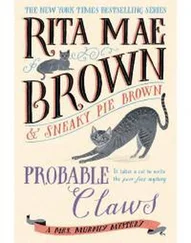No doubt the lawyer was thinking the same thing.
That same afternoon Dean Offendahl named every student at Lee High School who had ever bought drugs with him or done drugs with him. His father had worked out an arrangement whereby if Dean cooperated with the courts he would not be sent to a juvenile detention center.
He also had to name anyone else he knew that sold drugs. Fontaine Buruss’s name was on that list.
As this was immediately before Thanksgiving break, Mr. Offendahl hoped the worst of the gossip would be dissipated by the holiday.
During this time Sister Jane set out small heaps of corn throughout the fixture that would be hunted on Thanksgiving. She also walked deep into the ravine, patiently laying corn and bits of hot dog.
CHAPTER 61
Raising children, not an occupation for the faint of heart, baffled Bobby Franklin. He worked hard, paid the bills, supplied discipline when necessary, spent time with the girls. When they were younger Bobby carted them to horse shows, grooming, cleaning tack, applying that last-minute slap on their boots with a towel when they were mounted. He listened to them rant about unfair judges, sometimes agreeing, sometimes not. He observed them bite their lips so as not to cry when they lost. They also learned to win without undue celebration, as befits a lady.
Neither kid impressed her teachers with intellectual prowess but the physical education teachers thought them both wonderful. He feared the onslaught of adolescence but they sailed along. When Cody began to falter at sixteen he didn’t notice at first. She still competed in horse shows. She wasn’t surly, just diffident. He thought this remoteness a phase. He didn’t recognize that she was struggling until she was in her sophomore year of college. Wrecking her ancient Jeep was the first sign; a report card below the line was the second.
Betty sensed it long before he did. He wondered now if he’d done the right thing. He’d hated his father sticking his nose in his business, probing him about girls, drinking, parties, his future. He thought he was giving his girls room. Sitting before the tiled fireplace, Betty in the wing chair to his right, both daughters on the sofa before him, he had occasion to repent of his laxness. Mr. Offendahl kept the story of drugs at Lee High out of the paper but he couldn’t cut out people’s tongues. Neither Betty nor Bobby was surprised when their phone rang off the hook. Jennifer, horrified, slunk to her room, refusing to come out, declaring she would never go to school again, her life was ruined, et cetera. . . .
Cody, upset but levelheaded, drove over the minute her mother called this Tuesday night. Jennifer, dragged from her room, curled up on the sofa, rested against her big sister, arm around her.
“What I’m trying to understand is why neither of you talked to your mother or me. I can’t change what happened. You can’t. We’re all going to have to live with this for the rest of our lives.”
“I’m getting out. Send me to school somewhere else,” Jennifer begged.
“No.” Betty stepped in. “The stories will catch up with you no matter where you go. You’ll face the music now and put it behind you.”
“I have no life.” Jennifer’s chin wobbled.
“Rada.” Cody squeezed her. Rada meant Royal Academy of Dramatic Arts, a phrase the kids used when anyone was being overly dramatic.
“It’s true.” Jennifer flared. “My life is ruined! You at least have Doug.”
“I have to live with my past the same as you. Stop this damned whining, Jen.”
“Girls.” Betty’s voice was low, redolent with authority.
The two shut up.
Bobby spoke. “I’m here to apologize to you. I spent too much time running the business. I know that now. If I’d been paying more attention I might have noticed, I hope, anyway. But I’m here now and we’re going to get this straightened out. We can’t run to rehab every time something goes wrong, and I can’t afford it anyway.”
“Dad, I’m paying my bills.” Cody felt guilty that she’d wasted her father’s money in the past.
“For which we’re grateful,” Betty replied. “But let’s get to the bottom of this. Your father and I aren’t perfect parents. We thought by sharing riding with you that we were together, a family together, but we missed emotional clues. You’ve both told us that you drank because everyone else was drinking. I’m taking the words ‘everyone else’ with a grain of salt. However, we were young once. We remember the pressure to fit in, to be part of a group. I even understand the drugs. It can’t be that much different from drinking. Someone says, ‘Here, this will make you feel good,’ and you do it. What I can’t understand is Dean Offendahl’s allegations. Jennifer, you’ve locked your door and cried in your room for over forty-eight hours. I assume there’s no liquid left in your system.” A wry smile crossed her full lips. “So let’s get this out and over with. Why?”
“I won’t go to bed with him anymore.”
“She’s right.” Cody backed her.
“You shouldn’t have gone to bed with him in the first place.” Bobby smacked the arm of his chair.
Betty shot him a dirty look. “That won’t help.” She returned her gaze to Jennifer. “Let’s use the defense ‘diminished judgment.’ I believe that. I even understand sleeping with a boy in high school. It happens.”
“Did you?” Jennifer hoped her mother had, of course.
“No.”
“I did.” Cody smiled at Jennifer. “Not my best move.”
“I want to know what Fontaine Buruss had to do with this.” Bobby kept calm although if Fontaine were alive he’d kill him.
Cody spoke first, partly to spare Jennifer and partly to give her time to organize her thoughts. “I needed money so I offered to ride Keepsake, the new horse Fontaine was trying. He’d come around the barn when I was working the horse and hey, he was sexy.” Noting the raised eyebrows of her father, she murmured, “Dad, he was.”
“He was.” Betty corroborated her daughter’s judgment.
“We did drugs. He’d give me extra money if I’d braid, a lot extra, really. He bought me new breeches, a saddle. Big stuff. I liked him but I didn’t love him and after a while I realized I was just another bird. Flying in and out. I also realized I was pretty messed up and I missed Doug. Dad, I know you aren’t crazy about Doug—”
Bobby cut in. “He’s a fine young man. My concerns were social and I was wrong. I was wrong and I’m sorry.”
Her father’s repentance touched Cody. She wasn’t accustomed to Bobby admitting error. “It’s okay, Dad. We’ll put that behind us, too.”
“Didn’t you think about Sorrel?” Betty asked.
“No. Mom, when you’re doing drugs you don’t think about anybody but yourself. Besides, he’d cheated on her so many times I didn’t see that one more affair was going to break her heart. He made the marriage vow; I didn’t.” She held out her palms upturned. “But I was wrong. I’m telling you what I thought at the time. People can rationalize anything, can’t they?”
“World War Two proved that beyond a doubt.” Bobby put his fingertips together. “What happened when you left Fontaine? Or did you leave Fontaine?”
“Nothing.” Cody shrugged. “It wasn’t a blowup. It’s not like we were in love or even that emotional. We had fun. That’s the best way to describe it. I had Jennifer drop me at the bar—” She thought a moment. “Maybe that second Saturday in October, I think. Anyway, Doug was there and I wanted him back. If he’d have me. Maybe I needed Fontaine to really love Doug. God, it’s messy.” She sighed. “I needed help. I still need help. I think I’ll be going to AA and NA meetings and drug recovery meetings for the rest of my life. I don’t think I can do it alone and”—she wanted to make her parents feel better—“you can only do so much. It takes a drunk to understand a drunk.”
Читать дальше












